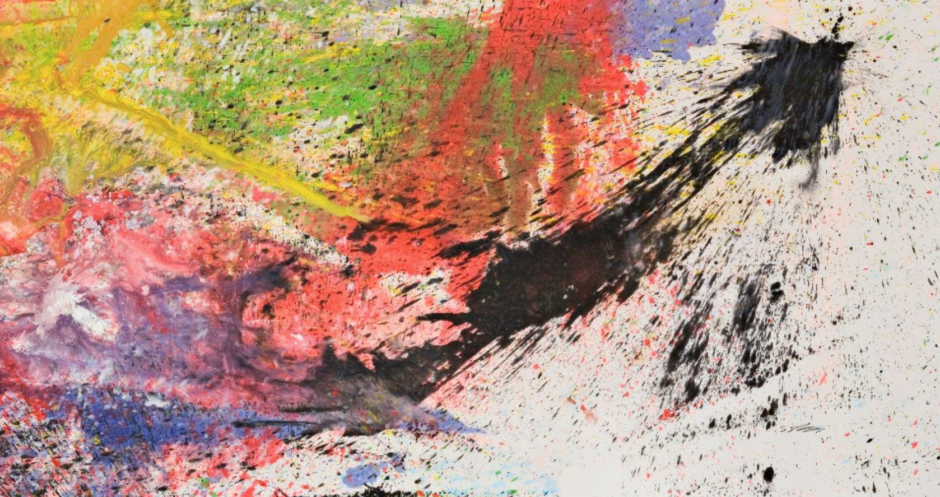We Impose No Rules: Select Works from the Gutai Group
The Arts Club
13 September 2017 – January 2018
WE IMPOSE NO RULES: THE GUTAI GROUP. The Arts Club is set to present an exhibition focusing on key masters of the Japanese avant-garde group, Gutai – several of whom have never shown in London before. Founded in 1956, the Gutai group forged radical new ways of making abstract paintings in terms of both their actions and as an overarching philosophy. Encouraged by Gutai founder Jiro Yoshihara to “do what no one has done before!” the artists used unorthodox techniques including inciting explosions, crashing jars of paint against surfaces and using the artist’s body to paint in novel ways.
Started four years after the end of the allied occupation that transformed Japan into a democratic State, Gutai rejected traditional art styles in favour of performative practices. They declared freedom of expression, an emphasis on individualism and had a desire to express the true natures of their materials, whilst also being in an open dialogue with artists from around the world, from Jackson Pollock to the Dadaists. Politically, Gutai marks a clear break from Japan’s autocratic and isolationist past and a desire to build a new language for art after the horrors of the Second World War. Works by masters Shozo Shimamoto, Atsuko Tanaka, Takesada Matsutani, and Toshio Yoshida will be on display.
The Arts Club show marks the London debut of works by Atsuko Tanaka (1932–2005) and Shozo Shimamoto (1928–2013), key members of the Gutai group who have been included in major museum shows in the US such as The Solomon R. Guggenheim Museum, NY and the Museum of Modern Art, NY, but remarkably, remain relatively unknown in Europe. Also included in the show are well-established Gutai members: Toshio Yoshida (1928-1997) and Takesada Matsutani (b.1937). Gutai’s innovations have been key to the development of art history.
Shimamoto, a co-founder of the Gutai movement in the 1950s, staged almost violent confrontations with the surfaces of his paintings, at first through piercing holes and cuts, and eventually by shooting jars of paint out of a canon to crash them onto the surface, creating beautiful abstract artworks in their wake. Tanaka depicts circles of colour connected by sinuous lines, at times in almost grid-like formations and in other instances, in chaos. She gained recognition for her Electric Dress (1956) consisting of wires and coloured lightbulbs that she wore to exhibition openings.
Toshio Yoshida also worked at the intersection between painting and performance. His practice includes burn paintings, made by searing or scarring plywood panels with soldering iron or red hot coals and, his single brush stroke Sakuhin paintings. He also made pour paintings, pouring Indian Ink from a watering can, and foam paintings, built up through soap foam mixed with paint. Takesada Matsutani began exhibiting with the Gutai group in 1960. He used vinyl glue to create bulbous, scar-like elements on canvas surfaces, blowing them up with his own breath to create the swellings.
Together these artists represent the highly varied experimental pursuits of Gutai, united by a strong commitment to ideals of individual freedom.
The exhibition is curated by Amelie von Wedel and Pernilla Holmes from Wedel Art.







